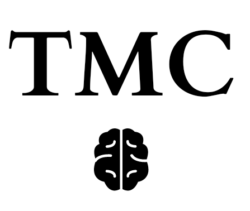How therapy works
Therapy, “In my early professional years, I was asking the question: How can I treat or cure this person? How can I provide a relationship which this person can use for his or her own personal growth?”
Carl R. Rogers, (1902 – 1987) American psychologist.
Let me first say that talking therapy works. Hundreds of thousands of individuals across the world, with a wide array of mental disorders, have been helped to lead more balanced and fulfilling lives.
In many ways, you don’t really need to know how it works, you just need to experience the process to see if it works for you. Therapy succeeds in diverse ways for different people. Agreeing to suspend defensive or critical responses is a positive way to start. You’re likely to get out of it what you put in. It is, in part, taking responsibility for your own well-being. Embarking on a course of therapy, long or short and whatever variety, is far more likely to produce tangible outcomes when it’s underpinned by openness, honesty, willingness and commitment rather than cynicism or reluctance. It’s very much a joint enterprise.
Having said all that, it’s still a question worth asking…’How does it work?’. That’s particularly true for those wondering whether this is the right route to take. The most likely alternative for, say, depression, is taking pills. The latest studies show that talking therapy is frequently more successful than medication – and without the side-effects.
So, it works on a number of levels
Therapeutic sessions provide a safe place where you can discuss what is troubling you. A trained therapist who has nothing at stake except helping you get yourself well. Being listened to — attentively, dispassionately and in a non-judgemental way – is hugely therapeutic in its own right. That alone can often clarify the mind and start the healing process.
Talking gives you the chance to explore your thoughts and feelings and the effect they have on your behaviour and mood. It can help you identify where your negative or limiting feelings and beliefs come from and why they are there. But, of course, it’s much more than just listening…however important and uplifting that is.
It is, crucially, about working towards goals and solutions. You’ll be encouraged to look at, and think about, things in a different way; you’ll be learning new ways to react to events or people. Most therapies can help you to understand your difficulties and distress and then move on to mutually identified and reachable aims. The sessions can help you overcome fears or insecurities and learn techniques to cope with stress.
It may be the course will include methods to help you make sense of past traumatic experiences and possibly identify the triggers that may worsen your symptoms. The sessions will aim to establish a stable and dependable routine with trust being at the heart of the patient/therapist relationship. Out of this will come a plan for dealing with future crises and how to maintain what gains are made.
Things move much more quickly if you’ve given some thought before the sessions about the issues you’d like help with. Areas like your family or other relationships and perhaps relevant childhood experiences. The list you bring could include symptoms you have noticed like changes in eating or sleeping habits, loss of libido, anger, anxiety, irritability or thoughts of harming yourself or suicide.
Talking
Generally speaking, it’s likely in your first few sessions, you’ll be doing most of the talking. With a few prompting questions, this is how we’ll draw up some mutually acceptable plans involving short and long-term goals and what forms of therapy might be drawn upon. Improvement doesn’t usually happen overnight (although I have witnessed some miraculous transformations!) and so it’s important that you keep track of your feelings – possibly in written form.
Sessions generally are 50 minutes (the therapist’s hour) once a week. It can be helpful to research a bit of background in books, something that is referred to as Reading Therapy. There are many types of talk therapy and most therapists (including myself) use a combination of approaches. At its simplest level, cognitive therapy concentrates on your thoughts, behavioural therapy on your actions and interpersonal therapy looks at your relationships with others. Group therapy involves several, usually unrelated people, working with the same therapist and each other. One approach is not necessarily better than another – the best choice is the one that works best for you.
But therapy isn’t just about getting well.
It’s also about maintaining wellness and preventing a return to un-wellness. You wouldn’t expect the fitness benefits of several weeks at the gym to last you months or years after, that level of health you achieved would rapidly decline. Mental health needs constant vigilance and refreshing. An important aspect of therapy is that it can provide you with a mental ‘kit-bag’ to cope with future problems. Modern life throws up all manner of challenges, but those versed in the techniques of therapy and with several hours of guided self-analysis are much more likely to deal with these curve-balls more calmly.
A real benefit of therapy is that it not only helps you understand yourself better, but it helps you understand other people. Jumping to conclusions about others – reading a book by its cover – can result in wrong assumptions and conflict. Therapy can definitely improve your understanding of other people’s intentions and motives.
In other words, it upgrades your empathy and raises your emotional intelligence.
Perhaps of greater significance is that habitual use of the new thought processes learnt in therapy actually changes the electrical circuits of the brain. New patterns of thinking can form fresh neural pathways –neural plasticity – a rewiring of the brain that is measurable. No need for self-medication or endless prescriptions.
And finally, it’s likely to make you a better parent. Learning how to deal with your own thinking and feelings can help you pass on the benefits to your children if you have them.
Parents can help their children learn more open and honest ways of thinking and a more expressive vocabulary about feelings – surely so much healthier than growing up in a household where everything is repressed and stifled.
Thankfully, people are beginning to open-up more about their personal struggles and mental health issues. The stigma seems to be fading. Its vitally important at a time of increasing pressures from modern society, social media and rising population density.

